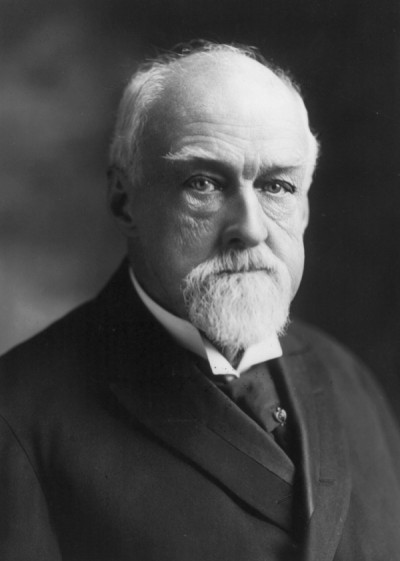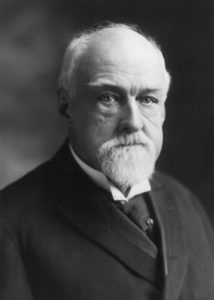Samuel McEnery
Democrat Samuel McEnery served as governor of Louisiana from 1881 until 1888.

Courtesy of Library of Congress Prints and Photographs Division
Samuel Douglas McEnery. Unidentified
Democrat Samuel McEnery, who served as governor of Louisiana from 1881 until 1888, assumed the governorship following the death of his predecessor, Louis Alfred Wiltz. He was elected to term on his own merits in 1883. Wiltz strove to promote the development of new business and industry in the state, though some critics charged that his business-friendly policies led to corruption and fraud. McEnery was the last Catholic elected governor prior to the election of Edwin Edwards in 1971.
Born in Monroe on May 28, 1837, Samuel Douglas McEnery was the son of Henry O’Neil McEnery and Caroline H. Douglas McEnery and the younger brother of John McEnery, who also served as governor of the state. Samuel McEnery attended Spring Hill College in Alabama, the U.S. Naval Academy, and the University of Virginia National Law School. During the Civil War (1861-1865), he founded the volunteer company, Pelican Grays, which later became part of the 2nd Louisiana Regiment. In 1862, he was commissioned as a lieutenant in the provisional army of the Confederacy in Virginia and later commanded the Confederate training camp in Trenton, Louisiana. Following the war, he taught school in Monroe before beginning a legal practice in 1866. He married Elizabeth Phillips in 1878, with whom he had three children.
McEnery’s political career began during Reconstruction when he was active in the Democratic Party. From 1880 to 1881, he served as lieutenant governor during the administration of Louis Wiltz, assuming the governorship when Wiltz unexpectedly died in office. As governor, McEnery supported the construction of additional levees and promoted the development of new business and industry in Louisiana. He particularly supported the World’s Industrial and Cotton Centennial Exposition of 1884-1885 as a means of building the state’s reputation and encouraging trade. Critics charged that McEnery neglected public education, which suffered from lack of state funding during his administration, and ignored corruption surrounding the Louisiana Lottery. Before leaving office, Wiltz had all his correspondence destroyed, making it difficult to verify or dispute these allegations.
Francis T. Nicholls defeated McEnery for the Democratic nomination for governor in 1888, but appointed his former foe to a twelve-year-term on the Louisiana State Supreme Court. McEnery ran for governor again in 1896 but lost to Murphy J. Foster Sr., who promised to clean up or eliminate the Louisiana Lottery. Voters elected McEnery to the U.S. Senate in 1897, where he served until his death on June 28, 1910, in New Orleans. He is buried in Metairie Cemetery.
Adapted from Joy Jackson’s entry for the Dictionary of Louisiana Biography, a publication of the Louisiana Historical Association in cooperation with the Center for Louisiana Studies at the University of Louisiana, Lafayette.
Sources: William Ivy Hair, Bourbonism and Agrarian Protest in Louisiana Politics, 1877-1900 (1969); Lawrence F. Kennedy, comp., Biographical Directory of the American Congress, 1774-1971 (1971); Miriam G. Reeves, The Governors of Louisiana (1972); Robert Sobel and John Raimo, Biographical Directory of the Governors of the United States, 1789-1978, 4 vols. (1978), Vol. I; New Orleans Daily Picayune, June 29, 30, 1910.
